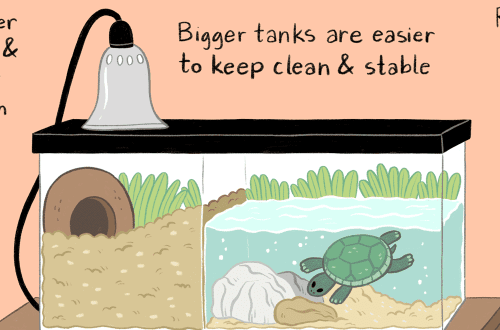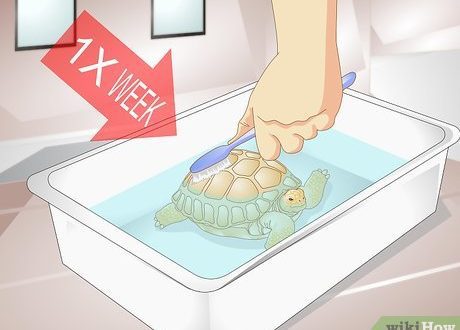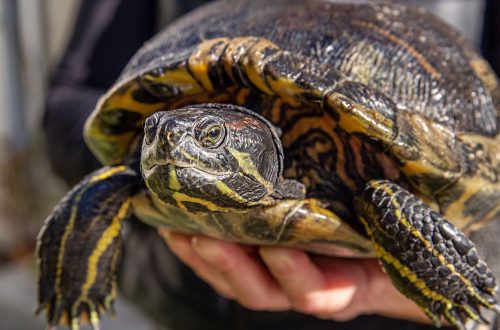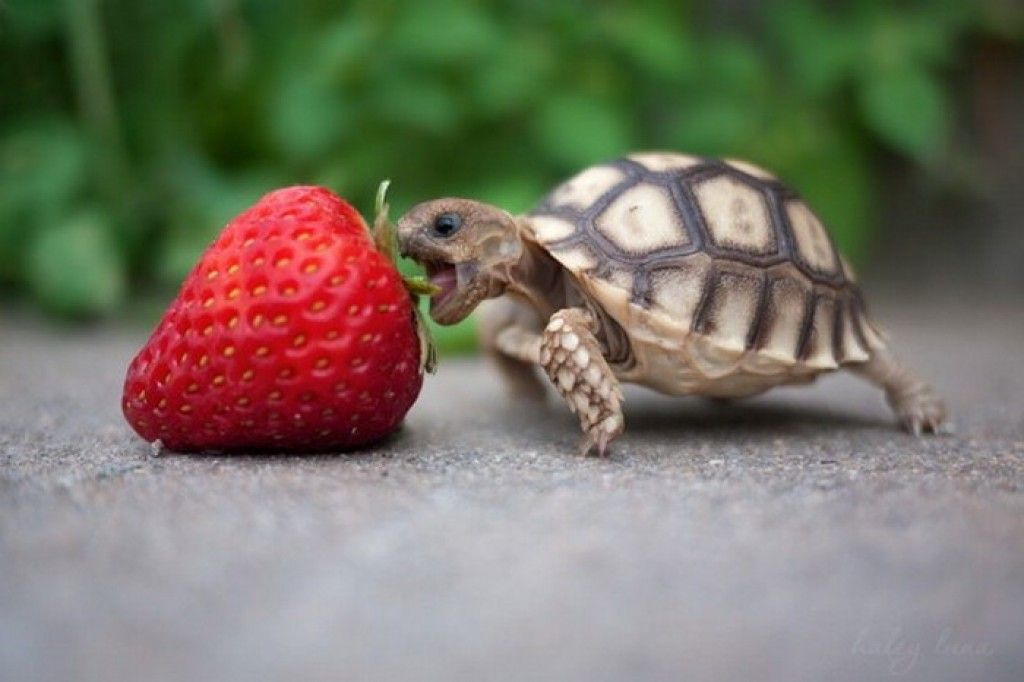
Turtle eats little!
Has the turtle lost its appetite? Has she become malnourished and chooses only certain foods? With what it can be connected and how to normalize a diet?
Before moving on to the causes of poor appetite, let’s decide how often a turtle should normally eat?
It is enough to feed an adult pet 2-3 times a week. If the food is chosen correctly and meets the body’s needs for nutrients, outside of these feedings, the turtle may well refuse food. And that’s completely normal. Young reptiles are fed a little more often. You can read more about this in the article “”.
If you feed your pet according to the norm, but he refuses food or eats only a small part, this is really a problem and needs to be addressed as soon as possible. Due to poor nutrition, the turtle’s body is weakened and cannot effectively resist external stimuli. Turtles begin to get sick and may die.
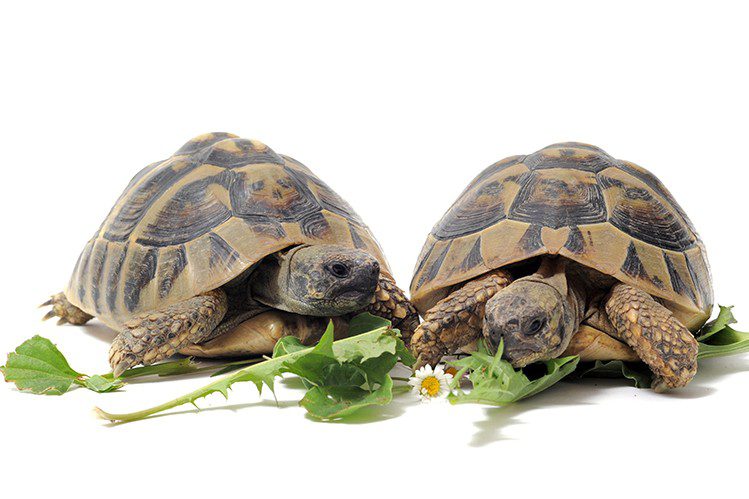
- Health problems
Lack of appetite may be associated with diseases. Some of them are asymptomatic in the initial stages, and you may not suspect anything about the pet’s poor health.
- Unfavorable conditions of detention
If the turtles are not eating well, analyze the conditions in which they are kept. Is everything normal? Is the optimum temperature and light regime maintained? Is there enough space for the pet? In inappropriate conditions, animals feel bad, and they are not up to eating.
- Stress
Stress is a very common reason for not eating. It can be caused by a huge number of factors: both related to the conditions in which the turtle is kept, and what happens outside the apartment window. The cause of stress can be a change in food, the addition of new neighbors to the terrarium, or, for example, a new home theater with powerful speakers: turtles are frightened by loud sounds.
- Shedding, mating season
The turtle’s appetite may deteriorate during molting, mating, wintering, etc.
- food selective behavior
If you feed a turtle natural foods or a variety of foods, and he chooses only certain ones and ignores others, this is food selective behavior.
Turtles, like people, can like certain foods. Some are so categorical in their love that they refuse all other food. This problem cannot be underestimated. A monotonous diet inevitably leads to an imbalance of nutrients in the body. Imbalance, in turn, starts a chain reaction: it strikes at weak points and leads to new ailments.
With food selective behavior, switching the turtle to a ready-made balanced diet will help to correct the situation. There are a lot of types of food for reptiles, it is important not to make a mistake. Choose a basic, complete food that fully meets the needs of the reptile. Tetra’s main food for adult turtles is ReptoMin. It contains absolutely everything that a pet needs for proper development, it is easily digestible and helps to maintain fresh air and cleanliness in the terrarium. But shrimp, grasshoppers and ReptoDelica snacks are already delicacies, i.e. extra food. It is purchased to diversify the diet of the pet and pamper him with new tastes. With such feeding, the imbalance of the turtle definitely does not threaten.
- Unsuitable food
The turtle may refuse food if it is not suitable for him or if its quality leaves much to be desired. Make sure you choose the right diet for your pet’s species and age.
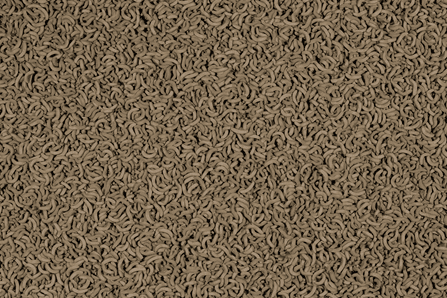
- weather changes
All reptiles, including turtles, sense changes in atmospheric pressure. Since reptiles are poikilothermic animals, their successful digestion depends on the ambient temperature. Therefore, despite the stable temperature background in the terrarium, when the atmospheric pressure changes, many reptiles refuse to eat. This is the result of evolution.
- Seasonality
Some turtles continue to “remember” the necessary and inevitable “wintering”, even if they have been kept in captivity for more than one year. If the turtle is clinically healthy, the housing and food conditions are ideal, and the refusal of food occurs in the fall, this may be the case.
With any changes in the condition of the turtle, first of all, you need to consult with a specialist. He will assess the situation and give appropriate instructions. Turning to a professional in a timely manner, you will not lose precious time. And in cases with diseases, you may even save your pet’s life.
Be careful. Follow the conditions of keeping the turtle and purchase only high-quality products. This is the best investment in your pet’s health!



